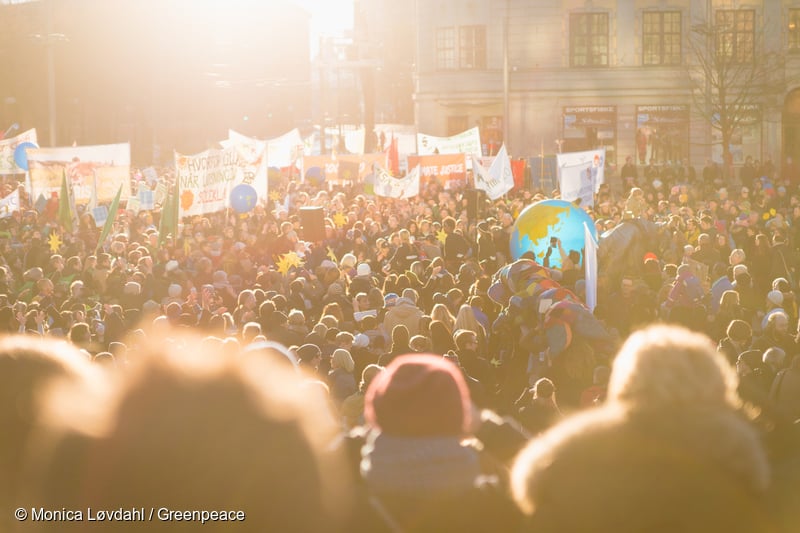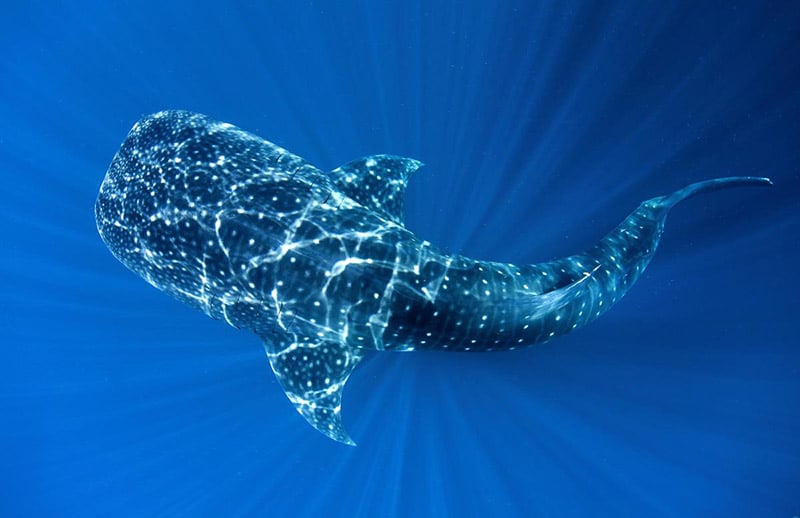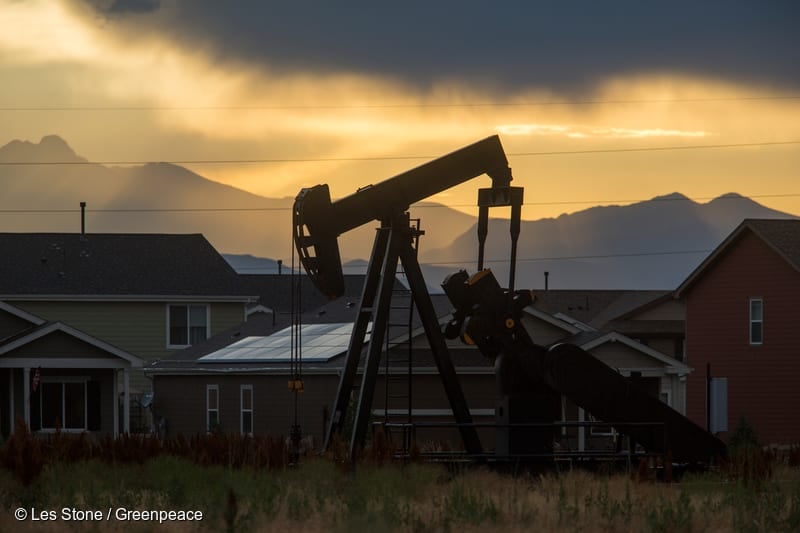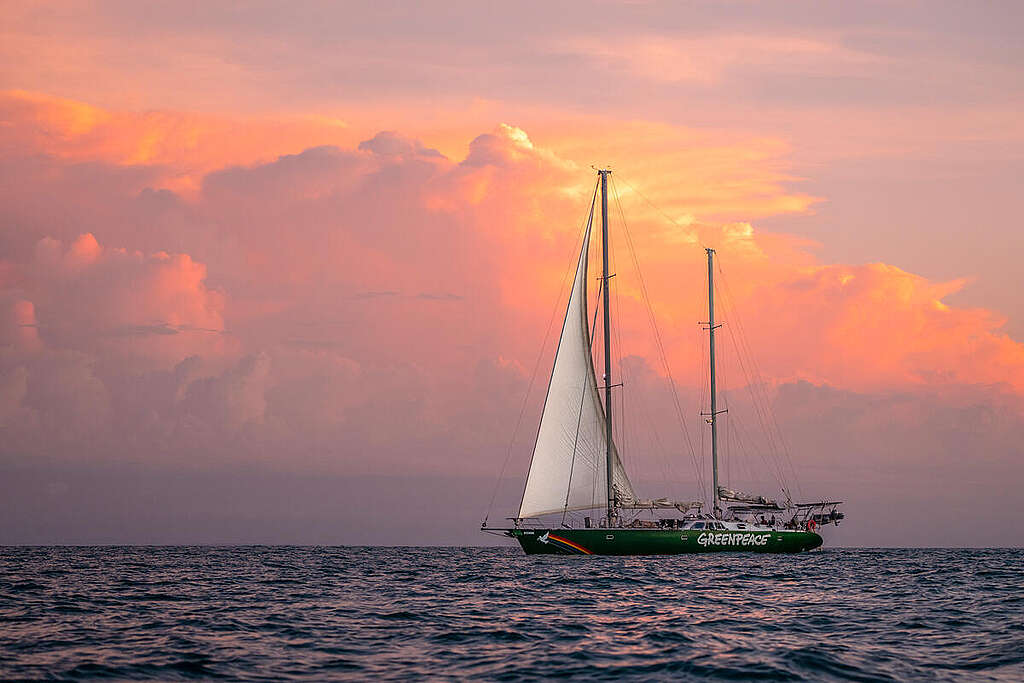
Our work
We’ve been campaigning for a green and peaceful future for over 50 years — with many wins along the way. Yet, today, we’re in the fight of our lives. Going back to normal is not an option. It’s time to rise up like never before and fight for our climate and communities.
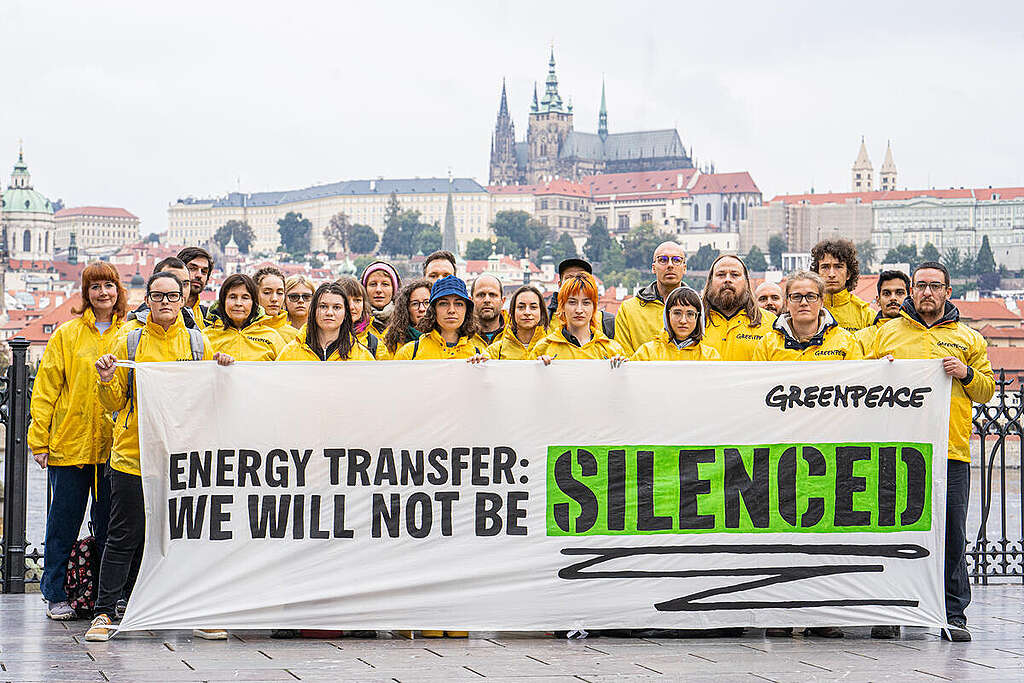
Energy Transfer’s $660 million lawsuit
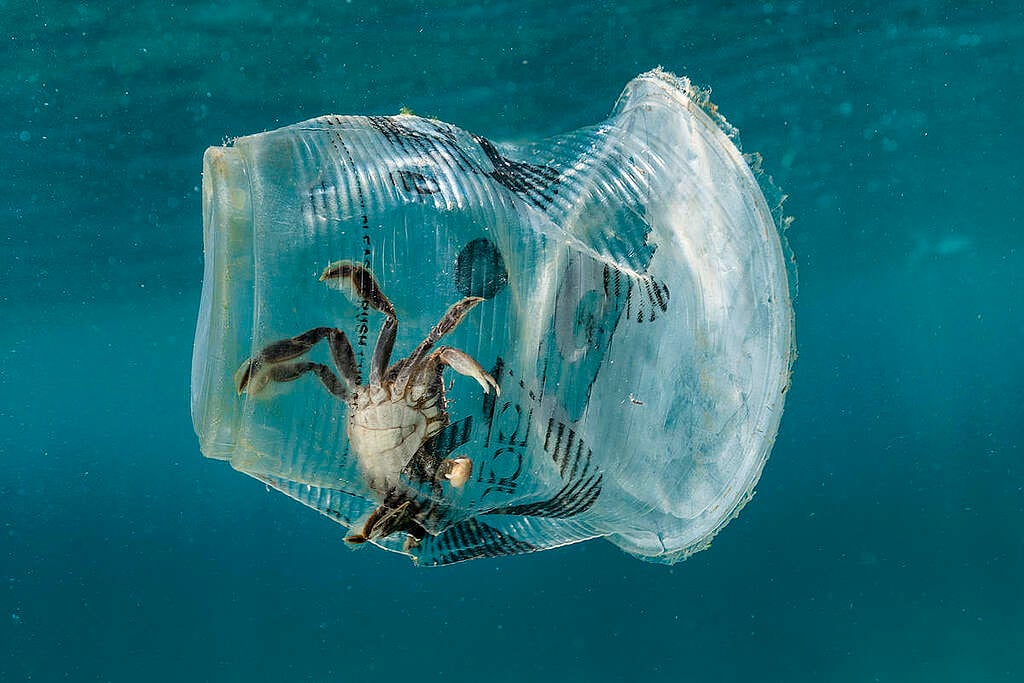
Fighting plastic pollution
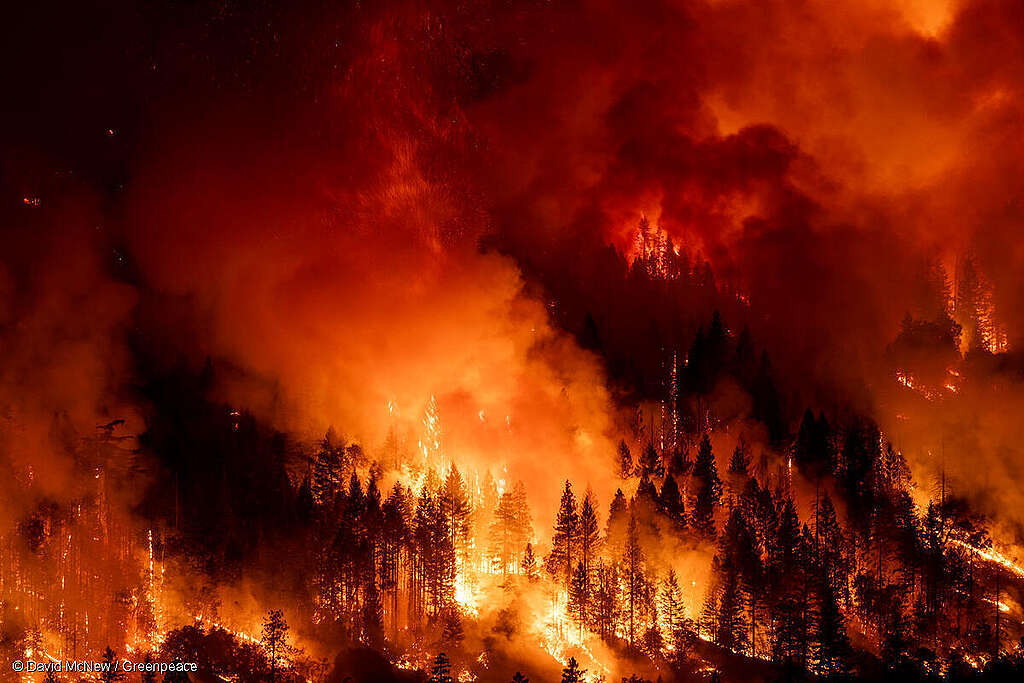
California climate emergency
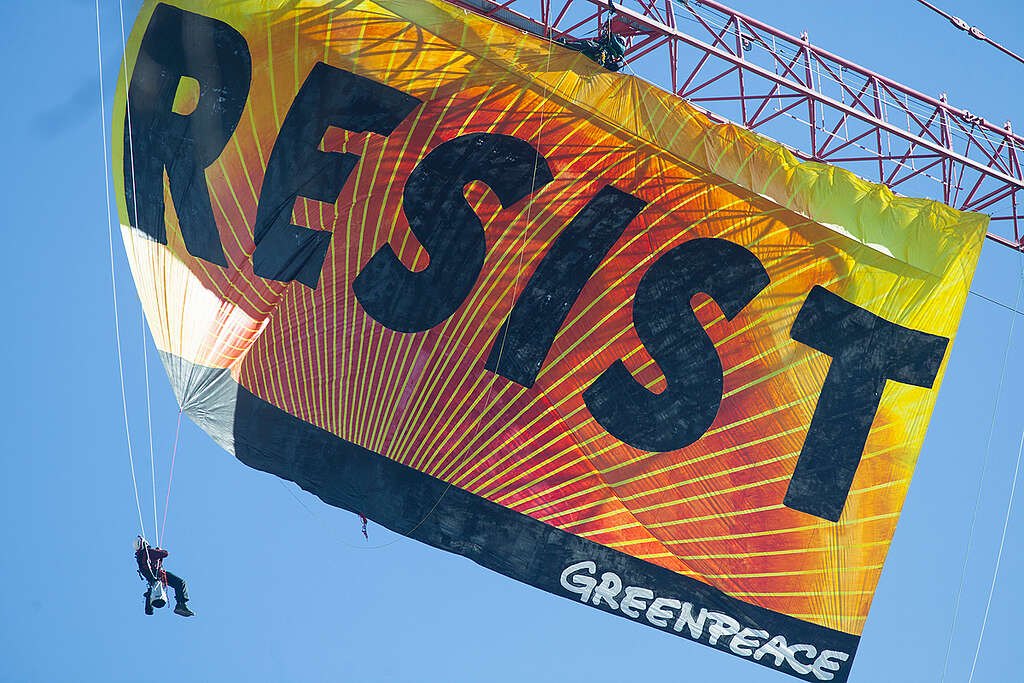
Defending democracy
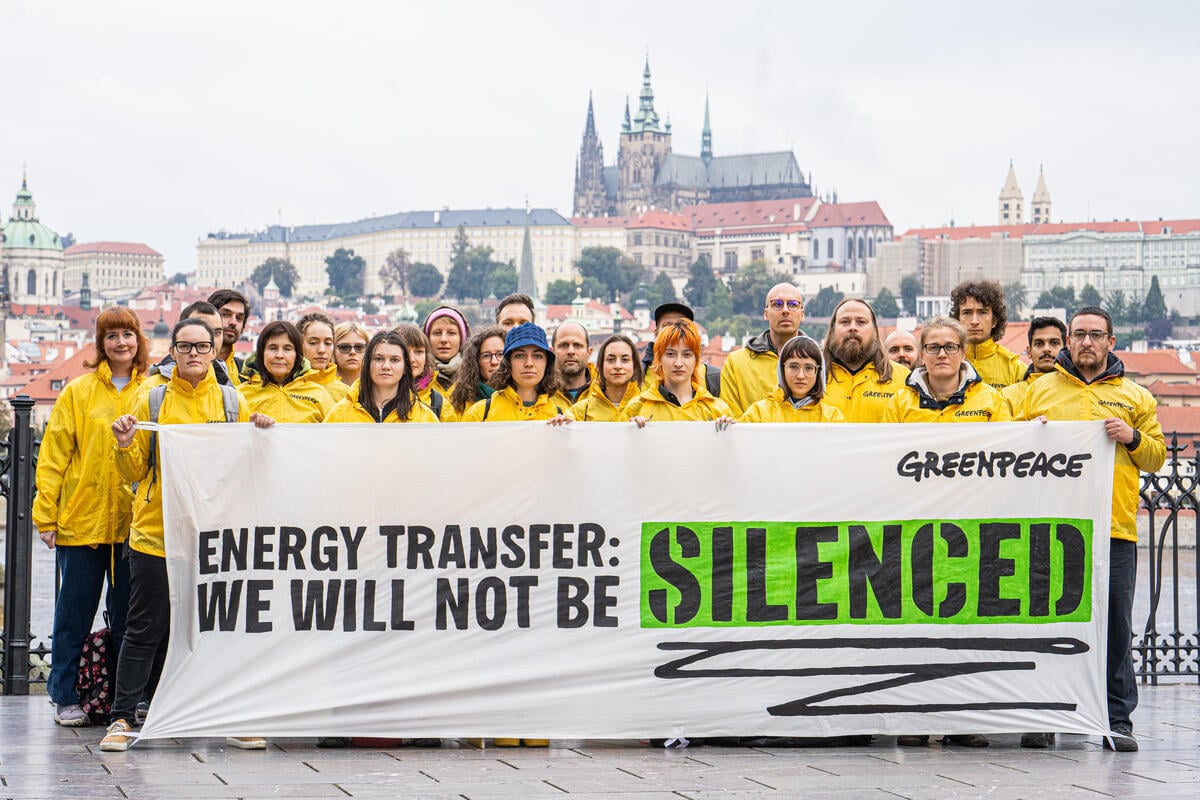
Energy Transfer’s $660M lawsuit
Energy Transfer, the Big Oil company behind the Dakota Access Pipeline, is suing Greenpeace USA because we dared to uplift the Indigenous-led opposition movement at Standing Rock. The case went to trial in North Dakota in February 2025, and seeks to create new legal precedents that would quell the climate justice movement’s ability to organize, protest, and dissent. A jury ruled that Greenpeace entities are liable for over $660 million in damages, but we are going to appeal.
Protecting the oceans
For centuries, people have assumed that our vast ocean was limitless and immune to human impacts. It’s only recently that scientists have come to understand the devastating effects we’ve already had on the seas.
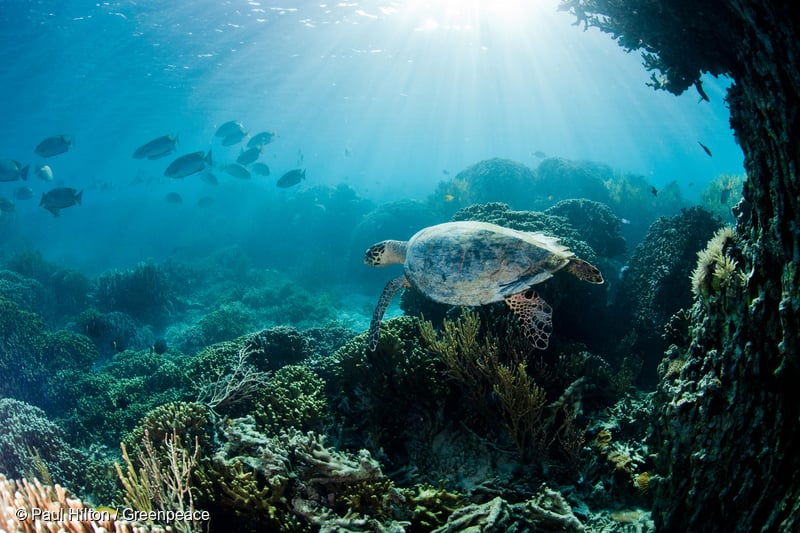

Fighting plastic pollution
The flow of plastics into our environment has reached crisis proportions, and the evidence is most clearly on display in our oceans. It is estimated that up to 12 million metric tons of plastic enter our ocean each year.
However, plastic is not just an ocean and waste problem, it is also a climate, health and social justice problem. 99% of plastic is made from fossil fuels, like fracked gas and oil, and it contributes to climate change throughout its life-cycle.
Ending climate change
Scientists are shouting an urgent warning: We have little more than a decade to take bold, ambitious action to transition our economy off of coal, oil, and gas, and onto safe and green renewable energy. Shifting to cleaner, locally-run energy will not only slow the tide of climate catastrophe, it’ll create millions of new jobs that sustain families while protecting community health.
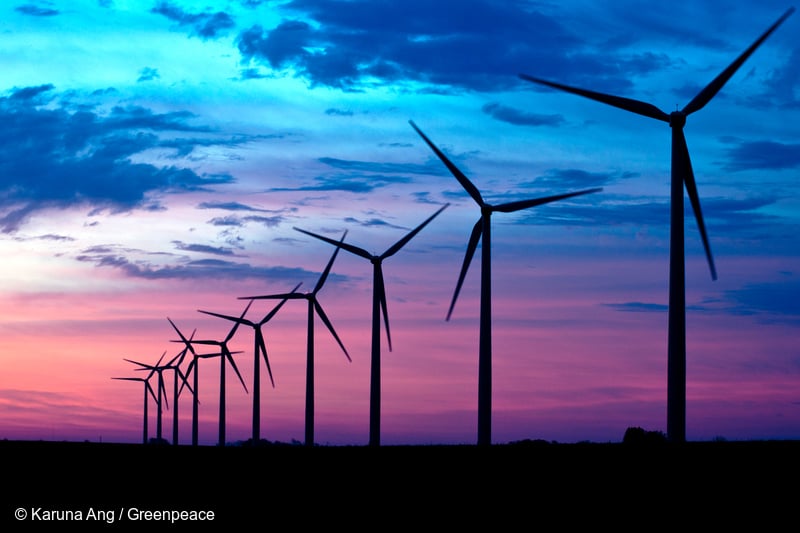
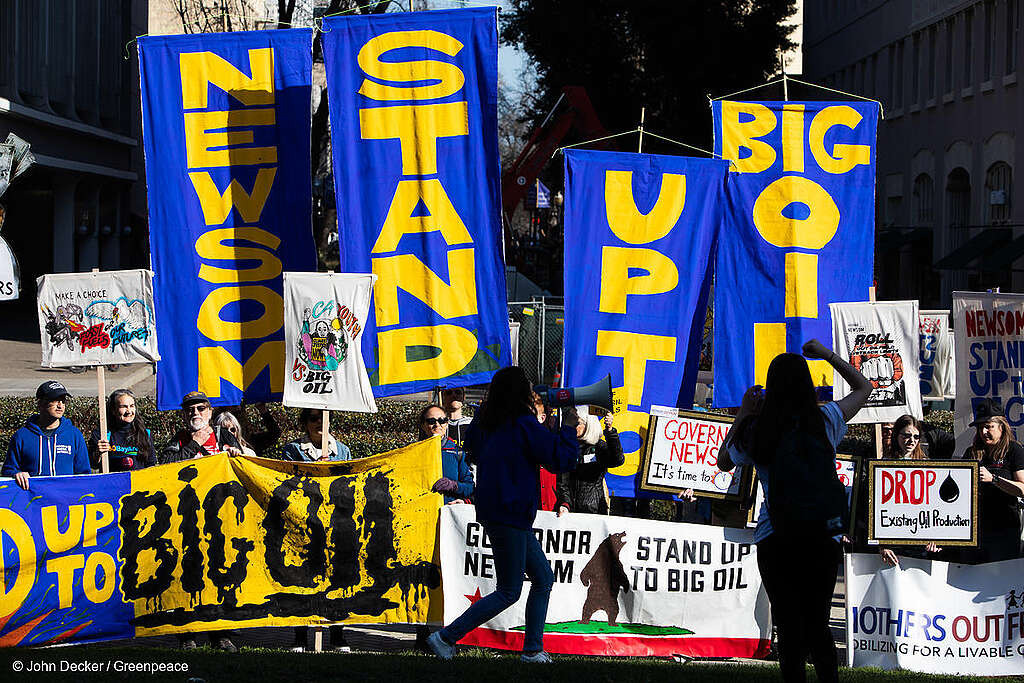
The California climate emergency
We must stop drilling for oil and gas if we want to maintain a livable planet. Unfortunately, greedy oil and gas companies continue to extract every last drop, putting the planet on a dangerous course to render our beloved California unlivable.
Defending democracy
We cannot protect our health and environment without a well-functioning democracy that works for all, especially BIPOC communities who have historically borne the heaviest burden of pollution and voter suppression. Our democracy should represent the interests of the people — interests like a safe climate and a healthy environment. Over the past nine years, Greenpeace USA has worked to defend democracy across a variety of issues. We are currently committed to defending democracy from three perspectives: The Right to Vote, The Right to Protest, and Ending Strategic Lawsuits Against Public Participation (Anti-SLAPP).
